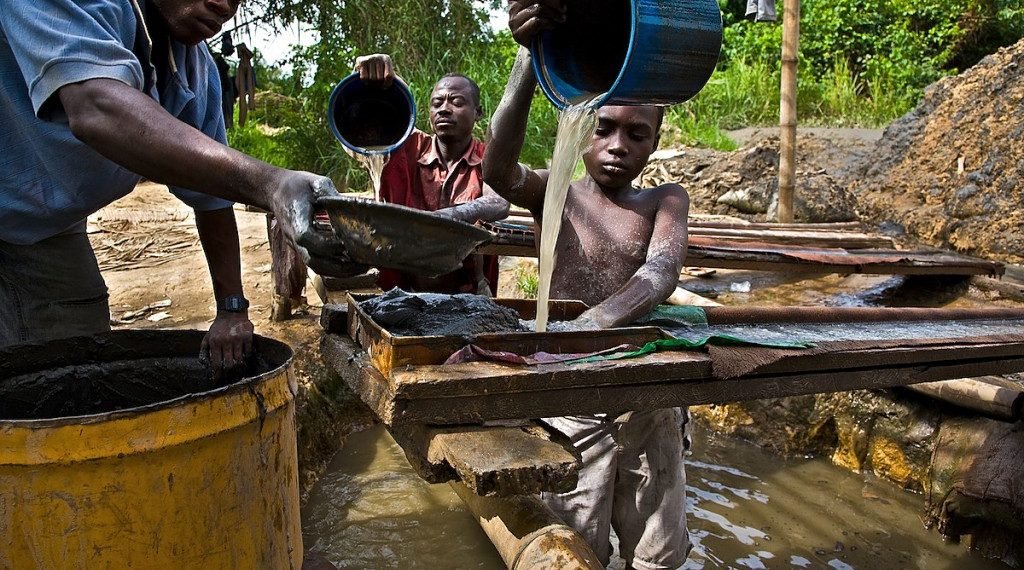The unprecedented impact of the COVID-19 pandemic together with massive school closures and inadequate government assistance has reset decades of progress, pushing children into worst forms of child labor, Human Rights Watch and Friends of the Nation suggest.
According to report, in catching up with the lost progress in ending child labor, the government and donors should prioritize cash allowances to families. Essentially, this is so that children’s rights are protected and families become better able to maintain an adequate standard of living without resorting to child labor.
The report, which primarily examines the rise in child labor and poverty during the pandemic also looks at the impact of the pandemic on child’s rights. Meanwhile, many children described being forced to work long laborious hours for little pay after their parents lost jobs or income during the period. Generally, children explained their working conditions as even more precarious and exploitative.
Solomon Kusi Ampofo, program coordinator for Friends of the Nation commented: “The pandemic has hit Ghanaian families hard, forcing many children into exploitative work. The government should increase cash assistance to families to prevent further increases in poverty and child labor.”
With the research conducted in Ghana, Nepal, and Uganda, a total of 81 children were interviewed within the age ranges of 8 to 17. In Ghana, Friends of the Nation interviewed 24 children ages of 11 to 17 who worked at gold mines, in carpentry, fishing, by transporting goods, and selling items on the street.
Furthermore, almost all of the Ghanaian children interviewed said that the pandemic has negatively affected their families income. Many entered the workforce for the first time to support their families. Some said they decided to work because their families didn’t have enough food.
Children worked under dangerous conditions
Some others described work that was clearly hazardous. Fifteen of the children interviewed worked in gold mining, which the government of Ghana has identified as one of the worst forms of child labor.
Moreover, the children said they carried heavy loads, crushed ore with hammers, inhaled dust from processing machines, and handled mercury, a toxic chemical that can cause irreversible brain damage. One 16-year-old boy reported handling explosives to blast the ore. Children working in other jobs also described exhaustion and carrying heavy loads.
That aside, many described working for long hours, especially during school closures and lockdowns. A third of the children interviewed worked at least ten hours a day, some seven days a week, the report indicates.
Meanwhile, these long working hours paid very little. Recounting the ordeal he went through, a 12-year-old boy said that he worked for 11 hours a day carting fish to market but was paid only 2-3 Ghana cedis per day ($0.34-$0.52).
“On many days, I go very hungry,” he told Friends of the Nation. Some children reported that their customers delayed paying them or refused to pay them.
In addition, the nationwide school closures contributed to the plight of children in Ghana, in terms of increasing child labor. In Ghana, when the school closures began on March 16, 2020, it affected over 9 milliocholdren.
Post-lockdown situations and Government intervention
Despite government’s provision of distance learning programs, children without access to televisions, mobile devices and internet have been negatively affected. One 15 year-old boy said “I was idle at home after schools closed down. So I decided to work to reduce the burden on my mum.”
This situation has prolonged for some children, even when schools reopened in January 2021. Some reported they had to still work to cater for themselves, thus, the demands of work hindered their regular school attendance.
Before the pandemic, the government’s cash transfer program, Livelihood Empowerment Against Poverty (LEAP) fared quite well, although lagging behind in its full potential. In 2020, the program reached only 5 percent of the country’s population.
Prior to the Covid-19 pandemic, Ghana spent less than half of the regional average for Sub-Saharan Africa on social safety net programs, including cash transfers. Its pandemic response has also lagged behind its regional peers.
Therefore, to adequately address the impact of the pandemic on children’s rights, the government must scale up its efforts in providing cash transfers to families and households in that regard.
READ ALSO: AGI welcomes establishment of National Development Bank























